AWAY FROM FREE SHIPPING
NICE. SHIPPING IS ON US!
AWAY FROM FREE GIFT
CHOOSE A FREE GIFT DURING CHECKOUT!
YOUR CART IS EMPTY. SHOP NOW.
Diet is the brick and mortar of health. A healthy, balanced diet plays a crucial role in maintaining the health and well-being of our feline friends. This article aims to provide a comprehensive overview of the basics of feline nutrition, including the key nutrients cats need, feeding guidelines, common dietary mistakes to avoid, and additional considerations. By understanding these fundamental principles, cat owners can make informed decisions regarding their furry companions' diets and promote their overall health.
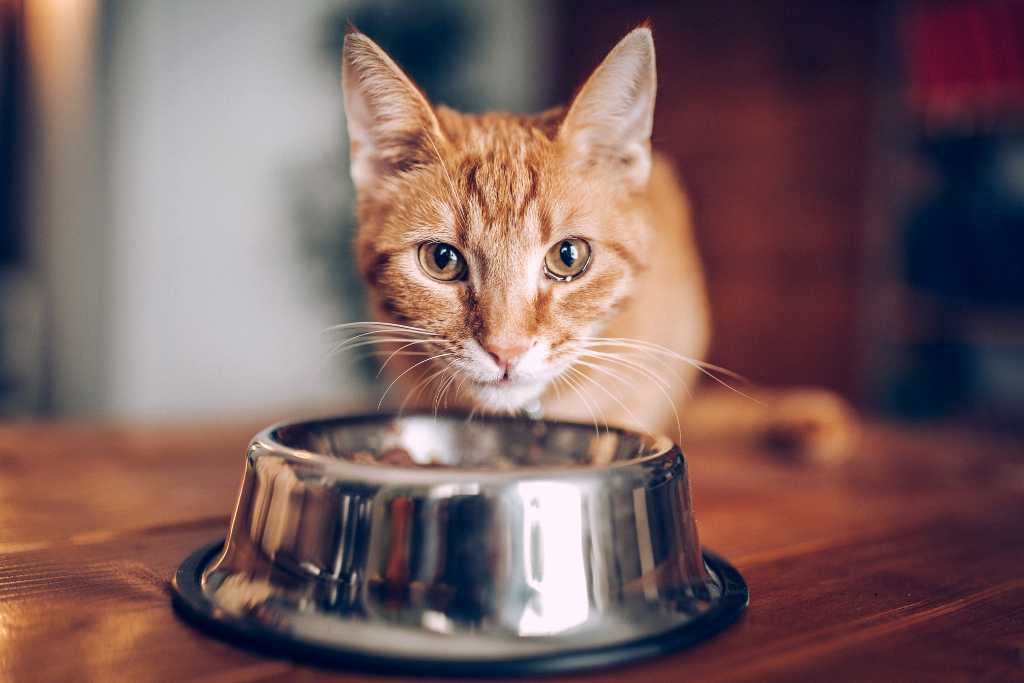
As obligate carnivores, cats require a diet rich in animal protein. They have a limited ability to metabolise carbohydrates efficiently. The primary nutrients essential for feline nutrition include:
Protein
Cats need high-quality animal-based protein as the main component of their diet. This ensures the supply of essential amino acids necessary for various bodily functions, including muscle development, immune system support, and hormone production. Good sources of protein for cats include meat, poultry, and fish.
Fats
Fats are a concentrated source of energy for cats and aid in the absorption of fat-soluble vitamins, namely Vitamin A, D, E and K. They also contribute to healthy skin and coat, and promote brain function. Fats will also enhance the palatability and taste of food for cats. Fats add flavour, aroma, and texture to their meals, making the food more enticing and enjoyable. This can be particularly beneficial for cats that are picky eaters or have a decreased appetite. High-quality animal fats are important for the cats' overall health.
Carbohydrates
Although cats don't require carbohydrates as a primary energy source, small amounts of fibrous carbohydrates can be beneficial. Fibrous carbohydrates, such as those found in vegetables, can help regulate digestion and maintain bowel regularity. However, it's important to note that cats have a limited ability to break down and utilise carbohydrates effectively. Cooking or pureeing vegetables can help make them more digestible for cats.
Vitamins and minerals
Cats need specific vitamins and minerals in their diets, including vitamins A, D, E, and B-complex vitamins, as well as minerals like calcium, phosphorus, and taurine. These nutrients support various bodily functions, including vision, bone health, immune system function, and overall vitality. Commercial cat foods are formulated to meet these nutritional requirements.
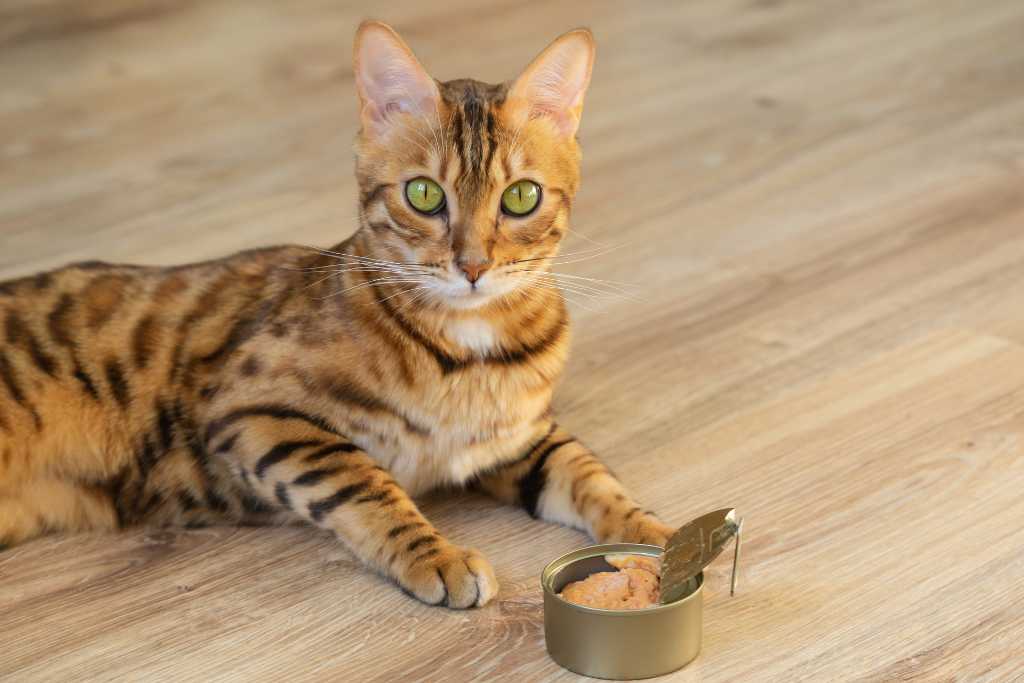
When it comes to feeding cats, it's important to consider their age, weight, activity level, and any underlying health conditions. Here are some general guidelines to follow:
Balanced diet
Look for a nutritionally balanced diet that meets the Association of American Feed Control Officials (AAFCO) standards. This ensures that your cat receives all the necessary nutrients in the right proportions. Commercially available cat foods, whether dry, wet, or raw, often meet these standards. Look for AAFCO labels on the packaging to ensure nutritional adequacy.
Portion control
Determine the appropriate portion size based on your cat's weight and follow the feeding guidelines provided on the food packaging. Adjust the portions as needed to maintain a healthy body weight. Obesity is a significant concern for cats and can lead to various health issues, so it's important to monitor their weight and adjust portions accordingly.
Meal frequency
Adult cats generally benefit from two small meals per day. Kittens and pregnant or nursing cats may require more frequent feeding. Consult your veterinarian for specific recommendations based on your cat's individual needs. Mealtime routines can help establish a healthy eating schedule for your cat.
Water availability
Cats should always have access to fresh, clean water. Ensure that water bowls are cleaned regularly and placed in easily accessible locations throughout your home. Adequate hydration is essential for your cat's overall health and proper bodily functions. If you are concerned that your cat isn't drinking water, switching to a wet cat food like this Kit Cat Complete Cuisine Tuna & Whitebait In Broth Cat Food will help to increase kitty’s water intake. Alternatively, you can add water or bone broth to your cat’s dry food.
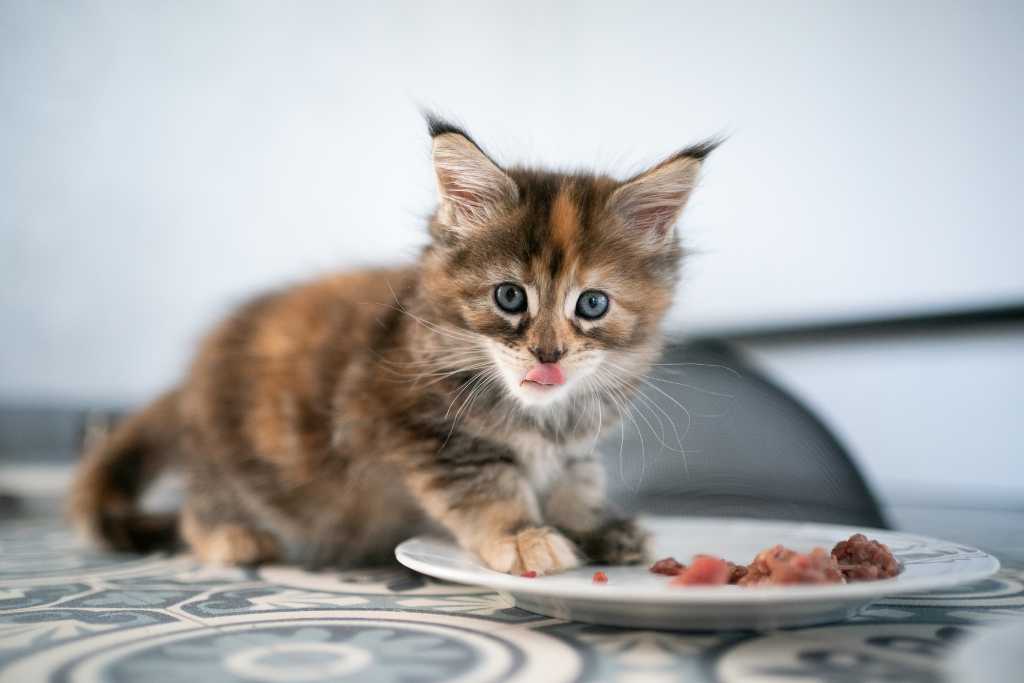
Feeding inadequate protein
As obligate carnivores, cats need a diet high in animal protein. With the rise of veganism in humans, some pet food companies are developing vegan cat food in which they claim has been fortified with taurine and other essential nutrients. The general consensus among experts is that cats need a meat-based diet to thrive.
If you are planning to homemade your cat’s diet, do thorough research on kitty’s protein requirements. If necessary, to add a boost of nutrition to your homemade diet, consider adding meal toppers like this Primal Freeze Dried Raw Toppers For Dogs & Cats (Beef) to your cat’s diet. Do consult your veterinarian to ensure that your homemade recipe meets your cat's nutritional needs. Insufficient protein can lead to muscle wasting, poor coat condition, and overall health issues. If feeding commercial cat food, choose cat foods that have high-quality animal proteins listed as the primary ingredients.
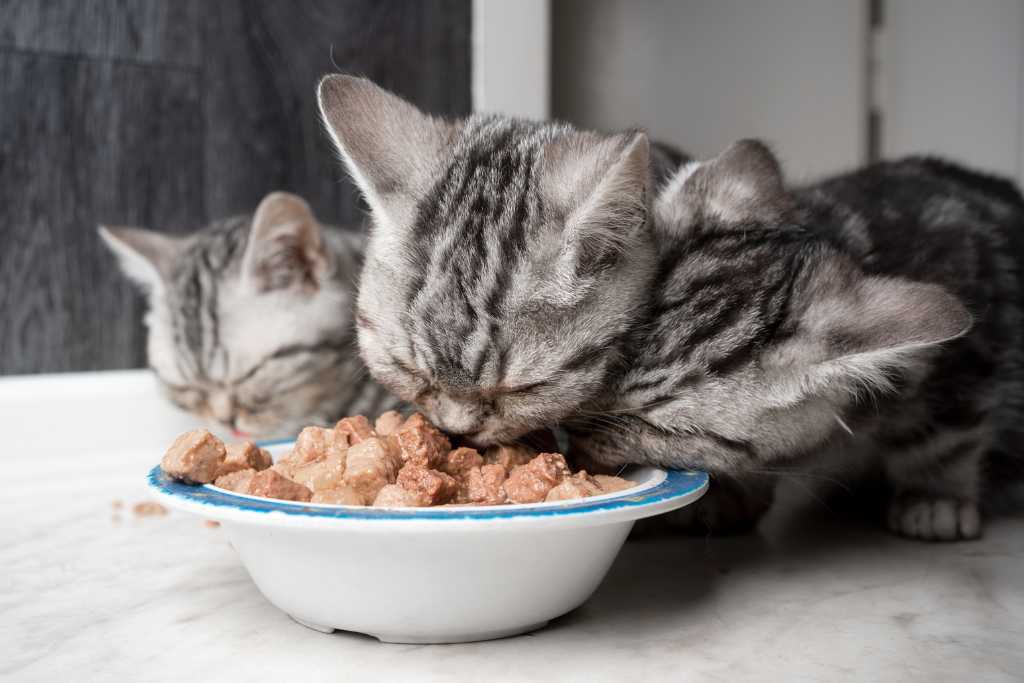
Overfeeding
Obesity is a common problem in cats, and overfeeding is a primary cause. Follow portion control guidelines and monitor your cat's weight regularly to prevent excessive weight gain. If you're unsure about the appropriate portion size for your cat, consult your veterinarian for guidance. Sometimes, switching from a regular diet to an indoor cat diet can help with weight loss. Indoor cat diets typically have fewer calories and some indoor-only cats who are not very active, may benefit from a lower-calorie diet.
Feeding inappropriate human food
Some human foods, such as onions, garlic, grapes, and chocolate, can be toxic to cats. Avoid feeding your cat table scraps or sharing foods without researching their safety first. Stick to cat-specific foods to ensure their nutritional needs are met and to avoid any potential harm.
Skipping veterinary guidance
If you're considering a homemade or raw food diet for your cat, consult your veterinarian to ensure it meets your cat's nutritional needs and is safe from bacterial contamination. Homemade diets require careful formulation to ensure they provide the necessary nutrients, and raw diets carry potential risks of cross-contamination if not handled and prepared properly. You may have heard the benefits of feeding raw but are concerned about cross-contamination, there are plenty of commercially available raw cat diets. Here’s one of them for your consideration - PetCubes Chicken Raw Cat Food.
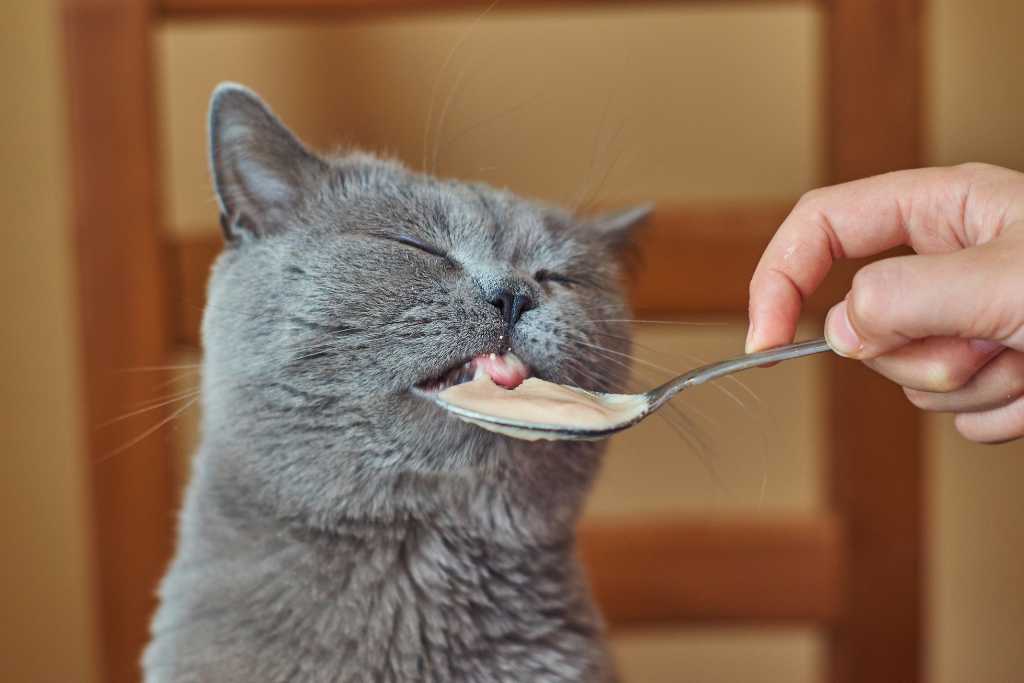
Apart from the basics mentioned above, there are a few additional considerations for feline nutrition:
Age-specific diets
Kittens, adult cats, and senior cats have different nutritional requirements. Kitten food is specially formulated to support their growth and development, while senior cat food addresses the changing needs of older cats. Consider age-specific diets to ensure your cat's nutritional needs are met at every life stage.
Medical conditions
Some cats may have specific medical conditions that require special diets. For example, cats with kidney disease may benefit from a phosphorus-restricted diet. If your cat has a medical condition, consult your veterinarian for dietary recommendations tailored to their specific needs.
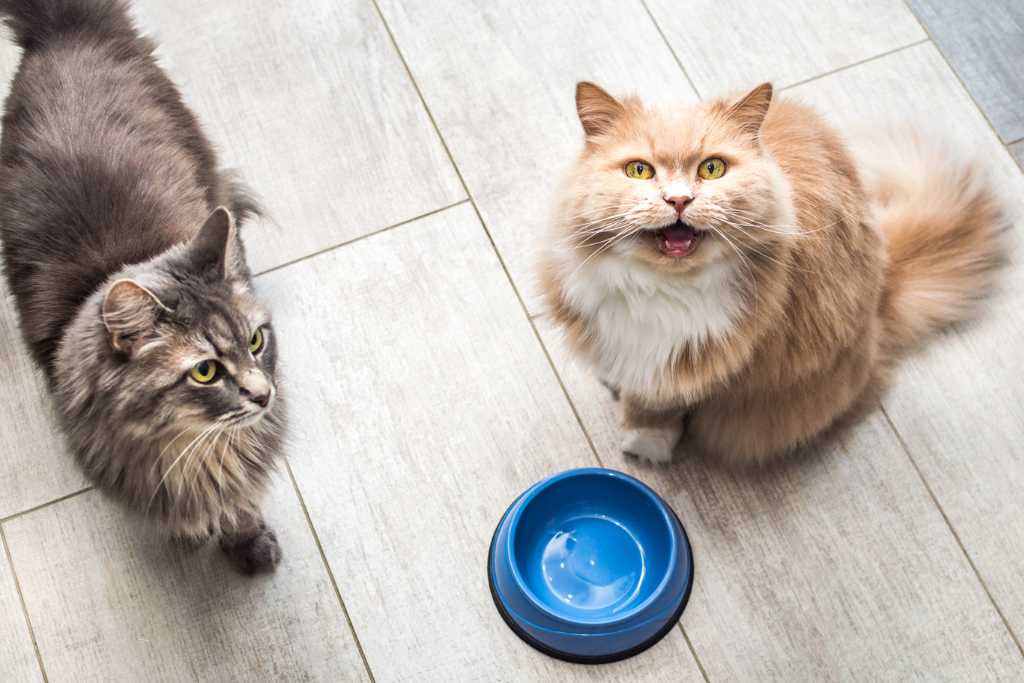
Understanding the basics of feline nutrition is crucial for providing a healthy and balanced diet for your cat. By prioritising high-quality animal protein, following feeding guidelines, avoiding common dietary mistakes, and considering additional factors such as age and medical conditions, you can ensure your cat receives the necessary nutrients for optimal health and well-being. Remember to consult with your veterinarian for personalised advice and recommendations regarding your cat's specific nutritional needs.

Comments will be approved before showing up.



